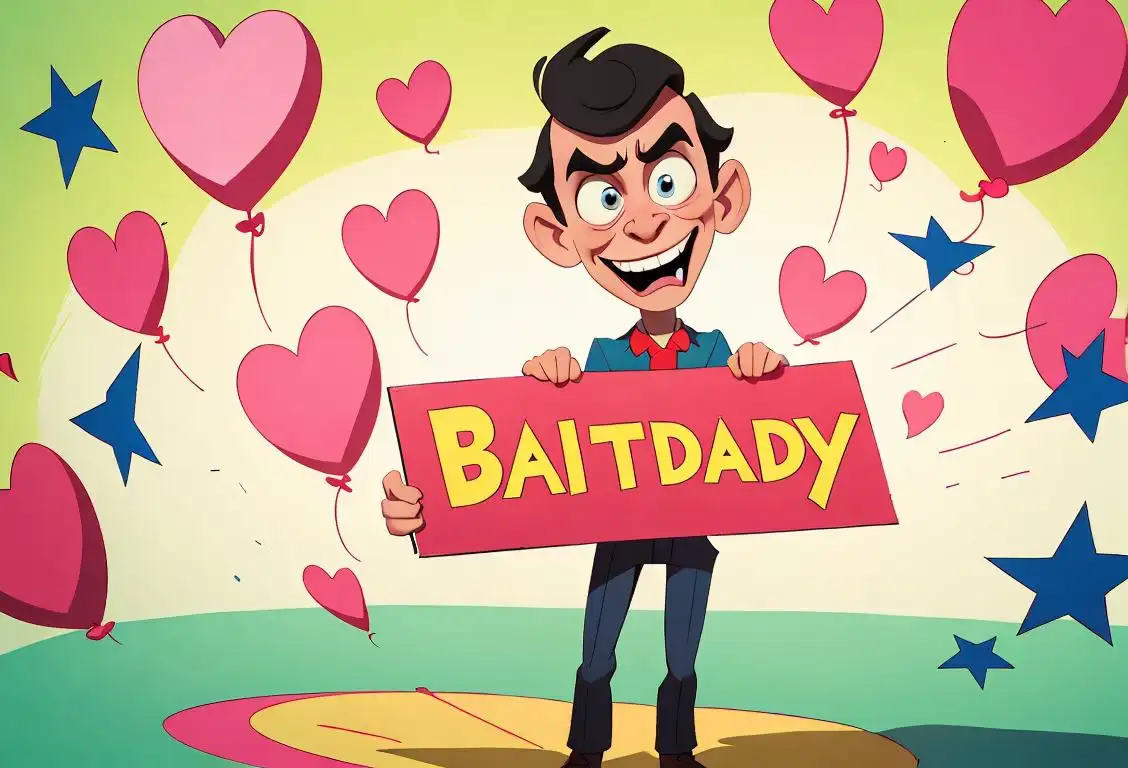National Lie Day

Hey there, fellow truth-seekers! Get ready to celebrate National Lie Day, a day dedicated to all things fibs, tall tales, and white lies! This quirky holiday brings out the mischievous side in all of us, so let's dive into the fascinating history of this deceptive day.
When is Lie Day?
It's national lie day on the 18th October.
A Brief History of National Lie Day
Although we couldn't find much information on the origins of National Lie Day, one thing's for sure: people have been telling lies since the dawn of human communication! Whether it's little white lies about our age or grandiose stories about run-ins with celebrities, lies are an intrinsic part of our social fabric. And National Lie Day gives us the perfect excuse to let loose and explore our inventive storytelling abilities.
In the online world, National Lie Day gained some recognition in 2015. On October 18th of that year, social media lit up with 24 mentions of this amusing holiday. It seems like people couldn't resist embracing their inner Pinocchio and engaging in a little bit of good-natured deception.
Ways to Celebrate
On National Lie Day, the possibilities for mischief are endless. Here are a few fun ideas to get you started:
- Create a tall tale competition with your friends or colleagues. Who can come up with the most extravagant, yet convincing, story?
- Stage a prank or two (make sure it's harmless and doesn't hurt anyone's feelings). Your creativity is the limit!
- Challenge your friends to a game of Two Truths and a Lie. Can you figure out which fact is false?
- Indulge in a marathon of comedy shows or movies known for their outrageous storytelling. Laughter is the best medicine, especially when it involves a few well-placed fibs.
Did You Know?
Did you know that the average person tells about two to three lies per day? It might seem shocking, but sometimes we need those little white lies to smooth out social interactions and protect our loved ones' feelings. Just remember, while celebrating National Lie Day can be a lot of fun, honesty is still the best policy in our everyday lives. So, embrace the silliness of this holiday, but don't forget the importance of being truthful the rest of the year!
History behind the term 'Lie'
9th century
Origin of the term 'lie'
The term 'lie' originates from the Old English word 'leogan', which means 'to speak falsely or tell an untruth'. It is derived from the Proto-Germanic word 'liugan', which shares a similar meaning. This term was commonly used to describe intentionally deceiving someone by providing false information or fabricating facts.
14th century
Wider usage of the term 'lie'
In the 14th century, the term 'lie' became more extensively used in the English language. It gained popularity as a way to emphasize the act of deliberately misleading or providing false statements. During this time, 'lie' was also used to describe false rumors or tales that were spread with the intention to deceive.
16th century
Legal interpretations of 'lie'
During the 16th century, the term 'lie' gained significance in legal contexts. It referred to the act of making false statements under oath, commonly known as perjury. Legal systems recognized the gravity of lying under oath, and the term 'lie' became associated with the offense of committing perjury.
19th century
Expanded connotations of 'lie'
In the 19th century, the term 'lie' expanded its meaning to encompass not only deliberate falsehoods but also statements that were intentionally misleading or deceptive. It came to include forms of dishonesty such as bluffing, exaggeration, or omission. The concept of a 'white lie' emerged, referring to a harmless or well-intentioned falsehood intended to avoid hurting someone's feelings or maintaining social harmony.
20th century
Psychological and philosophical exploration
In the 20th century, the term 'lie' gained attention in the fields of psychology and philosophy. Psychologists explored the motivations behind lying, while philosophers pondered the ethics and morality surrounding truthfulness. The intricate nature of lies and their impact on personal relationships, trust, and society as a whole became subjects of profound study and contemplation.
Present day
Continued relevance and complexities
In the present day, the term 'lie' remains an integral part of everyday vocabulary and discourse. It symbolizes the deliberate act of deceiving others, with implications reaching beyond spoken language. Lying encompasses multiple forms, from white lies to malicious deceptions, and continues to shape interpersonal dynamics, legal consequences, and ethical considerations across cultures globally.
Did you know?
Did you know that the average person tells about two to three lies per day?Tagged
fun celebration humorFirst identified
20th April 2015Most mentioned on
18th October 2015Total mentions
24Other days
Btm Day
Harot Day
Disaster Traitor Feku Darpok Fools Day
Jumla Day
Dislike Day
Per Day
Surprise Drug Test Day
Name Yourself Day
Lottery A Fucker The Day
Gun Titles Day







